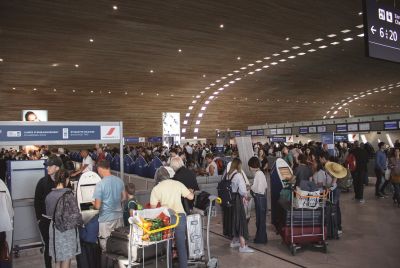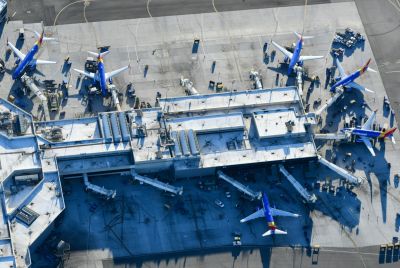Airports In Spain Make Massive Security Rule Change For Travellers, Will Begin from Later This Year
The new rule will initially come in Spain's three major airports

Spain is set to introduce new rules for passengers passing through airport security on their return journey.
As of now, three busy airports in Spain are going to install a new technology that will make the process speedier and smoother for travellers. Passengers will no longer be required to remove their liquids and electronics from their hand baggage for scanning, which would mark the country's step in upgrading security checks and reducing queue times.
The new equipment will have the latest scanning technology and will be able to generate 3D images and it will soon be fitted at Spain's three major holiday hotspots in Madrid, Barcelona and Palma.
Spain's national airport operator AENA is hopeful that the latest technology will help reduce queues and speed up wait times through security, especially during the peak summer period. Spain is aiming to ease the increasingly complicated transit process through airports while keeping security as a priority and also increasing the comfort of passengers.
AENA will set up new automated lines for the management of hand luggage, called ATRS. A remote inspection mechanism will also help get faster security screening at the airport.
Spain's national airport operator earlier explained that a part of the new system allows the separation of suspicious suitcases, while the remote inspection lets baggage control be carried out from a room, without the need for the security guard to be physically present.
While an exact date when the new technology will be implemented has not been revealed as yet, reports in the local media have indicated that it will certainly happen at some point this year.
Spain continues to be one of the favourite holiday destinations among travellers from the UK. The Western European country welcomed over 15 million British visitors in 2022.
Several airports in the UK are also upgrading their security processes with high-tech scanners, which also allow electronics and liquids to be kept in hand luggage at security. While airports such as London City and Teesside have introduced the new system, some of the country's largest airports have warned that they won't meet the Government's June deadline.
In London City and Teesside, travellers now can carry up to two litres of liquid, and toiletries no longer have to be put in separate bags. Passengers at other airports currently have to remove items such as tablets, laptops and liquids from hand luggage for security checks.
The restrictions on carrying liquids in hand luggage were introduced across UK airports in November 2006, after British police said it had stopped a plot to blow up around 10 planes using explosives hidden in drinks.
© Copyright IBTimes 2025. All rights reserved.






















